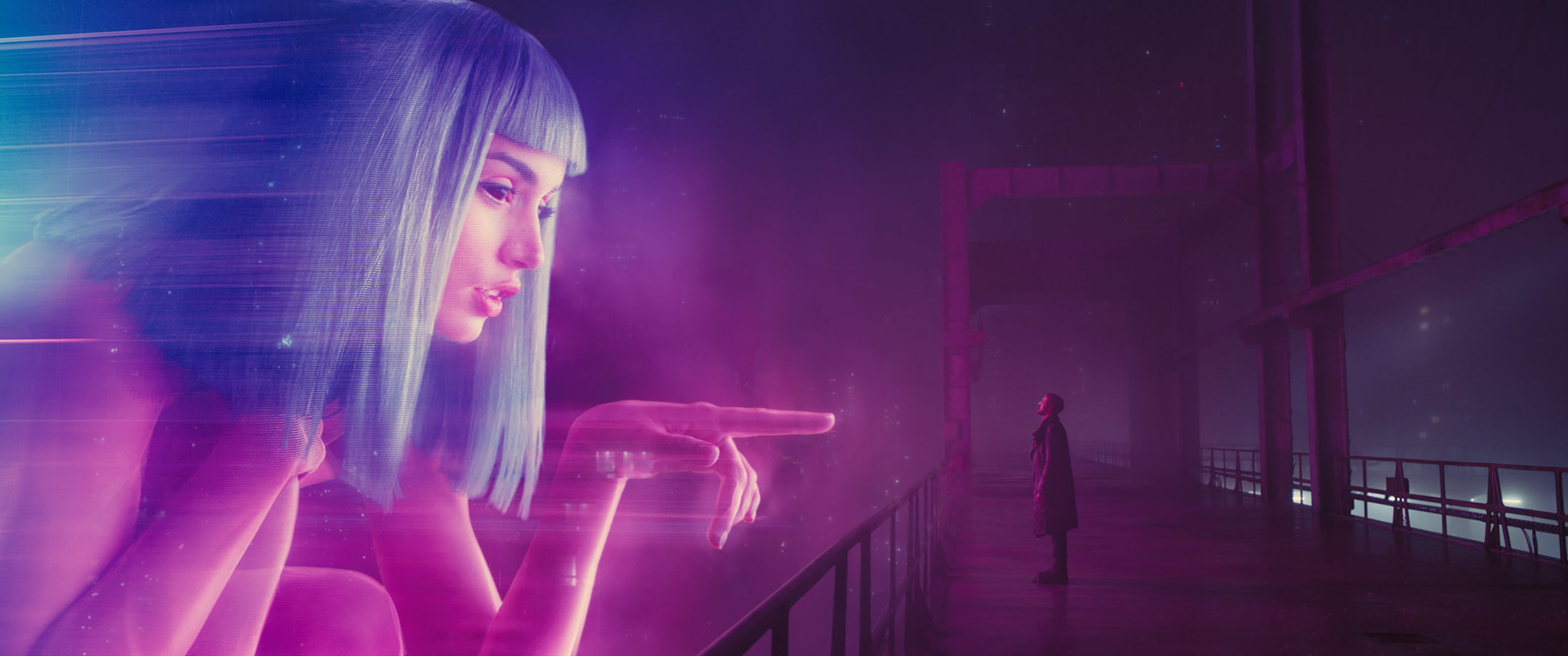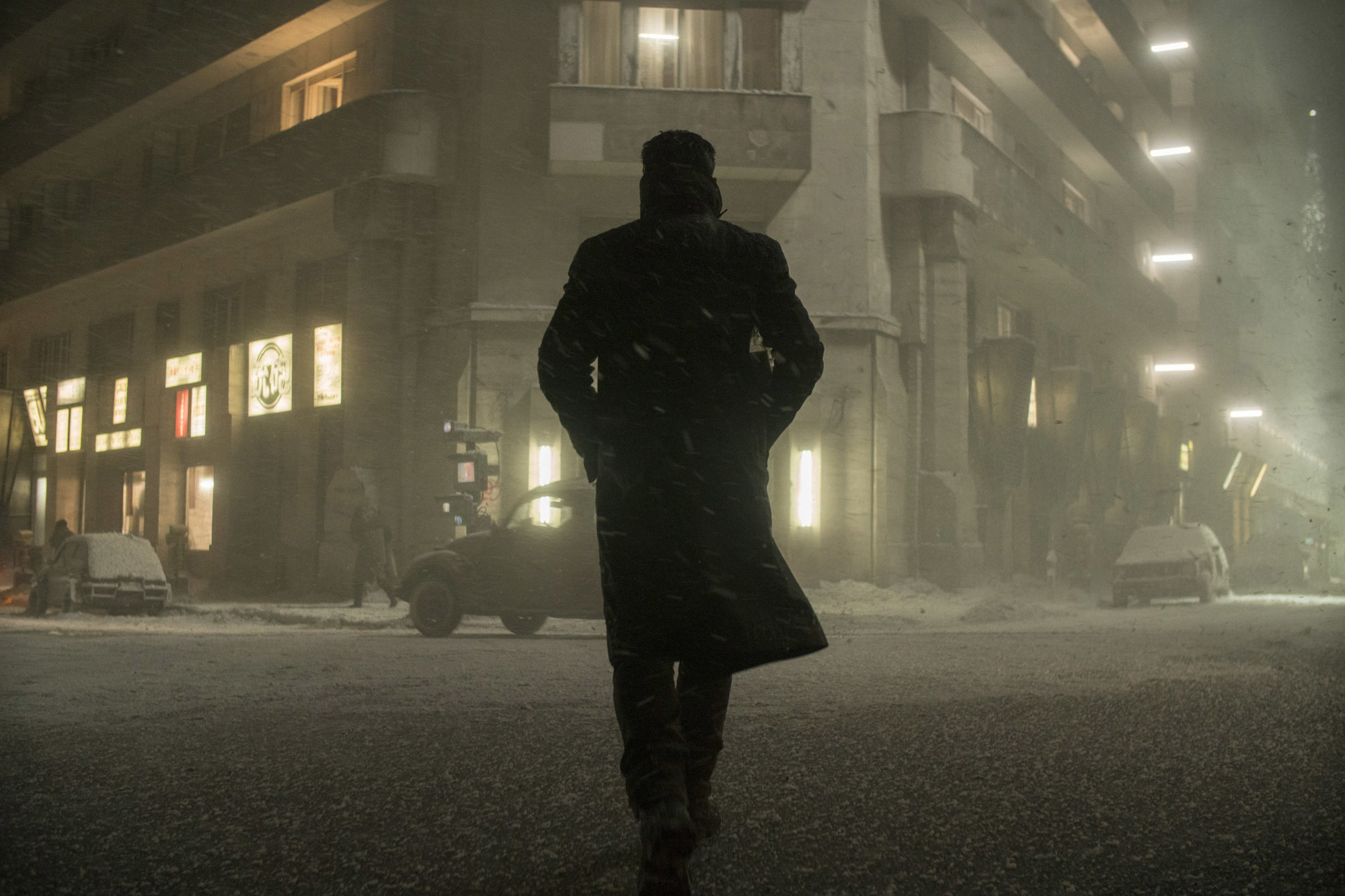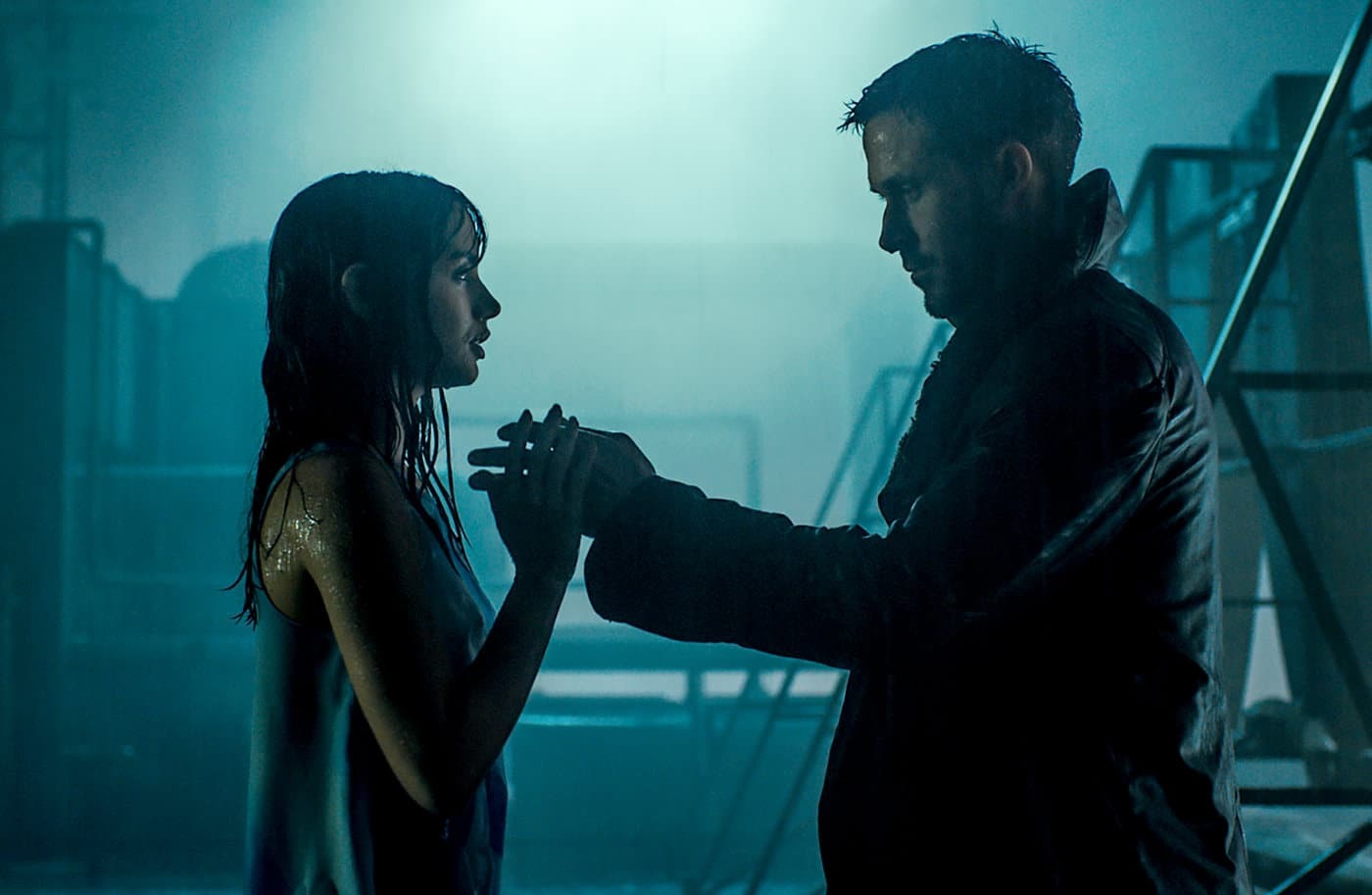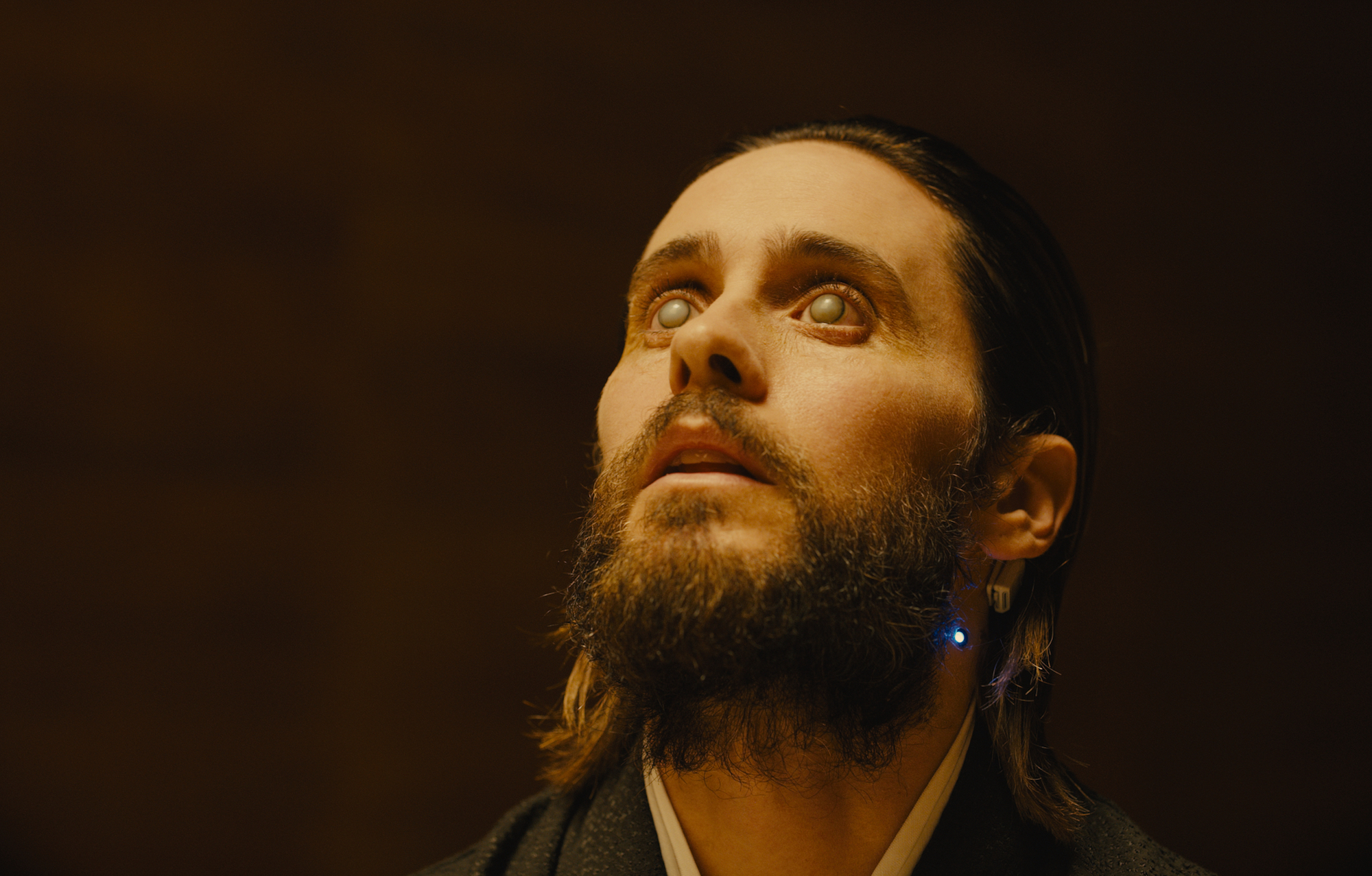- May 15, 2025
-
-
Loading

No housekeeping this week. There's too much to say already, because this week's picks are:
Amazon Prime, rated R, 163 minutes
Denis Villeneuve plus Roger Deakins equals the best-looking film I have ever seen.
Whatever else you think of “Blade Runner 2049,” it is undeniably a treat for the eyes. Every frame could be a poster; every scene could inspire a young viewer to go to film school. Characters aren’t painted in chalky light, they are consumed by it, leaving only a shadow. Holograms crinkle and glitch in the rain. Blood seeps when first drawn and crusts when it dries. New locations are given space to breathe, space for light to shine and then to wane. And for once, a Binge Blog film got the recognition it deserved. Deakins won his first Oscar for Best Achievement in Cinematography and the crew as a whole won for Best Achievement in Visual Effects.
I mean:

That much is undeniable. The debate comes with all the rest. Some people think “Blade Runner 2049,” the long-awaited sequel to the cult classic 1982 Ridley Scott film, is boring. Others think it is a modern science fiction classic, one that not only surpasses the original but leaves it in the dust, and will be revered as such in 15 or 20 years when people actually give it a chance.
Guess on which side I fall?

You don’t need to have seen the original film to enjoy “2049,” though it will add some emotion to certain moments and give more context to the world itself, which is overcrowded and ravaged by environmental disaster. Don’t worry though — there’s plenty of emotion regardless. The general conceit is this, most of which the film deftly explains right at the top:
In this world, there are beings called replicants, which are, essentially, humanoids created by humans to be slaves. (That’s not conjecture; the film uses the word slaves.) They are not androids. They are flesh and blood. But they aren’t designed to have emotions or souls, and they cannot reproduce. They can live forever and are stronger than humans, though this is not explicitly stated. The first wave of these replicants, shown in the first film (which takes place in 2019, weirdly), contained a flaw where they would rebel against their human companions, often violently. The government ordered that they all be tracked down and killed while production was halted. The people who do this hunting are called Blade Runners. It’s the job Rick Deckard (Harrison Ford) has in the original.

As “2049” begins, we learn that a second wave of replicants, flaws fixed, are back in production, though a few original models are still out there and need to be taken out. One of the new replicants, K (Ryan Gosling), is working as a Blade Runner himself. On a job, K discovers the remains of a replicant, Racheal, who had seemingly undergone a cesarean section surgery, implying she gave birth. This throws everything he and the world know about replicants out of orbit, and K gets caught among the people who want this secret eliminated, the people who want to profit off it and the replicants who see it as the key to their freedom.
The movie is K’s journey to finding the child in question, unsure what he will do once he does, or what questions it will raise. I fear saying too much else, but the movie meditates on what separates humans from other beings, and what other creatures might think of the way we act and emote. Gosling is superb as someone trying to put all these puzzle pieces together while reckoning with the reality of what he is. It’s his most vulnerable performance to date. (People who think he can’t act have not seen this movie.)

Also great are Ana de Armas, Robin Wright, Dave Bautista, Mackenzie Davis, Jared Leto, Sylvia Hoecks and, yes, Harrison Ford, in roles large and small. All add gravity to the story. All make valid points as to being on the right side of history. Films that have you questioning your own allegiances: Those are the good ones.
Look, I love this film and think about it often, and I think some of you will love it too if given the chance. Some of you won't, and that's OK, too. But I urge you to try it and to support original ideas in film. And watch it in a dark room, at the highest resolution possible. I promise, your eyes will thank you.
Amazon Prime, not rated, 88 minutes
The more we think we know, the less we actually do. The more stuff we have, the less that stuff matters. The older we get, the less we care what others think. So fuck it all and dance the night away.
That’s more or less the thesis of “Stop Making Sense,” the Talking Heads concert film directed by Jonathan Demme. There’s no dialogue, and any sense of story is purely speculative, but the show does go through a transformation. It opens with frontman David Byrne walking on stage alone, holding a boombox. He sets it down, presses a button that starts a drum machine, then plays an acoustic version of “Psycho Killer.” One by one, song by song, other members of the band join him, as the set’s backdrop is constructed around them. The band and backdrop get completed in time for a rousing rendition of “Burning Down the House.”
That isn’t the end of the show. Just the beginning. What follows is 10 songs of Byrne pulling out his David Lynch impression and getting as weird as possible. Sometimes he smacks himself in the face while singing. Sometimes, as featured on the film’s cover, he wears a comically large suit. Other times, like in the legendary performance of “Life During Wartime,” he does, well, whatever you call this:
It all culminates with “Girlfriend is Better” (which gives the film its name), a baptismal version of “Take Me to the River” and the blistering guitar attack of “Crosseyed and Painless.” The whole concert, up to this point, had been a build; these three songs are the release, first of sense, then of sins — remember that the show starts with a song about murder — and finally of everything else.
I liken this show to “Mister Rogers’ Neighborhood.” Both Rogers and Byrne can be silly, for no other reason than it brings them joy to be that way. There is no attempt to be cool or sexy or sophisticated. Byrne is letting his body dictate what happens next, outside of a few preplanned bits. It's pure in-the-moment emotion, pure glee, and it is electric to watch.
It helps that the songs are some of the best ever written. Byrne is an all-time great lyricist and Talking Heads instrumentals are catchy while complex, propulsive while off-kilter. The combination of post-punk guitar riffs, African rhythm sections and Byrne's yelps makes for a unique listening experience.
The more anxiety we hold, the worse we feel. So get rid of it, Byrne argues. Stop being to norms. Stop making sense.
It’s sounding better and better by the day.
A beautiful sentiment from Dr. Ana Stelline (Carla Juri), a childhood memory maker for replicants, in "Blade Runner 2049":
"They all think it's about more detail. But that's not how memory works. We recall with our feelings. Anything real should be a mess."